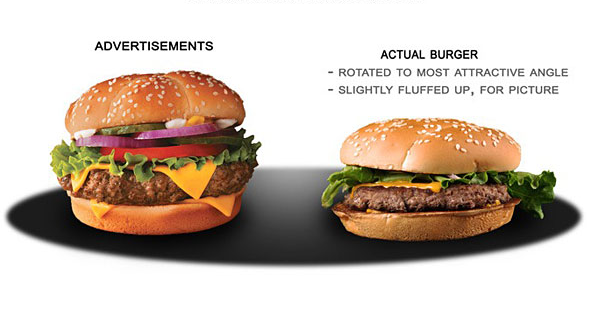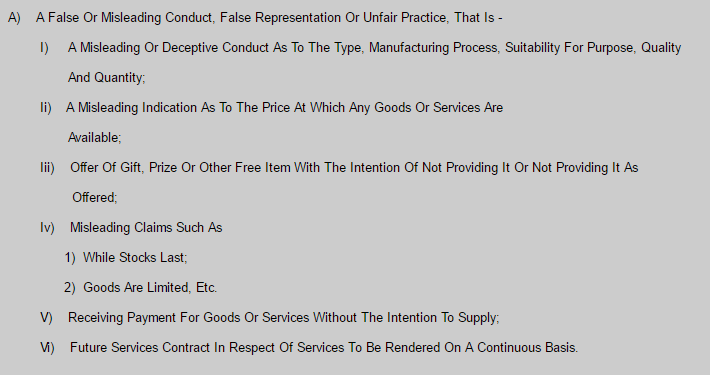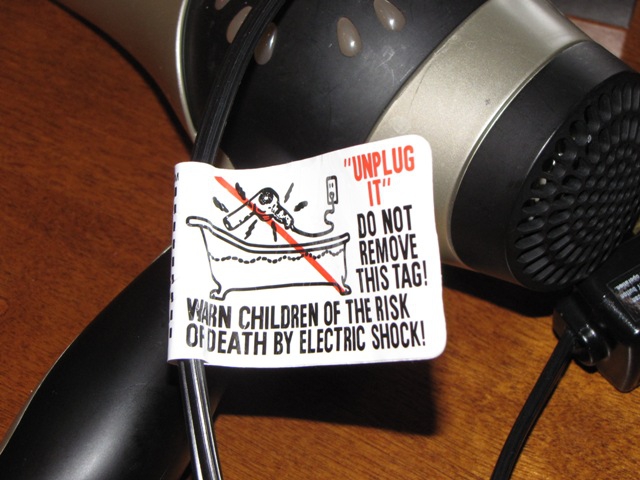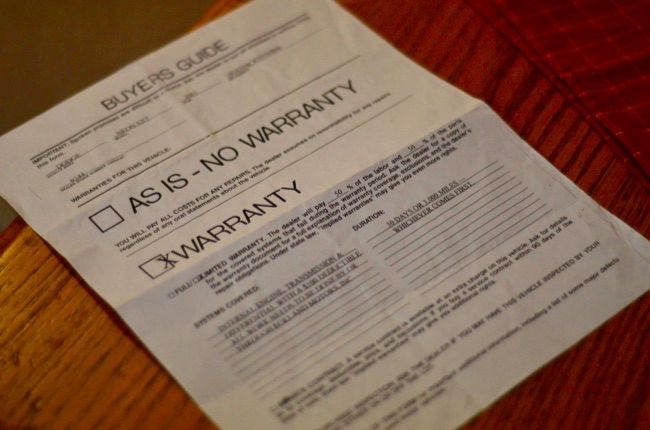Basic Consumer Rights You Didn’t Know You Had In Malaysia
Consumerism 101.
Does this image look too good to be true? It probably is. Burgers hardly look this good when served but these are the very images that creates the desire in people to consume it.
Section 10 of the Malaysian Consumer Protection Act 1999 states that it is lawfully wrong to make a false or misleading representation of the goods or services that a person or business organisation sells.
This includes the standard, quality, grade, quantity, grade, quantity and composition of the product or service.
From misleading advertisements, substandard services and unfair charges, consumers are constantly faced with unsatisfactory services
With businesses mushrooming all over the world, it is highly common for us to experience frustrating consumer problems at one point or another.
It can be highly frustrating to sit at a restaurant and to be served with less than satisfactory food. Most of us either brush it off, speak to the restaurant operators or post a Facebook status detailing the inconvenience.
While these actions may get the attention of the people and tarnish the image of the eatery or product, it may not exactly bright about any real improvement.
In comes Act 599: Consumer Protection Act 1999. With hundreds of laws that covers a wide range of situations, there's pretty much a law that protects you as a consumer in any possible situation you may find yourself in.
When faced with situations like these, we often forget that we are armed with consumer rights that can protect us from any unscrupulous business practices
While some situations can be solved after a friendly chat with the person in charge, the rest may require a legal approach that can settle the issue.
If the chicken rice you are eating at a hawker stall has a stray hair in it, you could just alert the stall owner and ask for a replacement. In most situations like this, they will usually be apologetic and will be more than happy to replace your meal.
But what if you buy a new cupboard and its door falls apart, hurting your feet and leaving you with a medical bill to treat the injury? Get in touch with the National Consumer Complaints Centre and make an official complaint.
Section 19 of the Safety Of Goods And Services under the Consumer Act states that goods and services must comply to the safety standards set by the ministry based on consultation with experts for respective goods and services.
With that in mind, most consumers fail to realise that they hold the power to not only voice their concerns, but to also make legitimate claims and changes
The Ministry of Domestic Trade, Co-Operatives and Consumerism (TTPM) allows you to make claims based on the consumer laws should you face a problem with the goods or services that you purchase.
Listed below are situations which allows you to make legal claims through TTPM:
1. For products or services that are misleading or falsely represented
Part II of the Consumer Protection 1999 refers to Misleading And Deceptive Conduct, False Representation and Unfair Practice by sellers or business owners.
Even false claims of free gifts are considered misleading as stated in the Tribunal For Consumer Claims:
To put it simply, the section talks about any form of advertisement, sales promises that do not hold its end of the bargain. An example can perhaps be a fruit seller that has boards of adverts saying that he sells the freshest produce that is guaranteed to be in good condition but you realise that most of it is rotten after you buy it.
The seller has managed to mislead you into believing that his fruits are in good condition when in truth it isn't. It could either be an honest mistake or one that was done committed knowingly. Business owners who mislead can be fined up to RM250,000.
When faced with situations like this, you can usually speak to the seller and ask for a replacement, but if he or she refuses to comply, then you can drop an email and follow through with TTPM.
2. Goods and services that do not comply to the promised safety standards
Goods and services must comply to safety standards set by the ministry. Part III, Section 19 of the Consumer Act 1999 states that the minister sets the standards based on recommendations and consultations with relevant and competent agencies.
According to the law, nobody is allowed to supply or advertise any goods or services that have failed to pass the set safety standards.
Picture this - You buy an electric cooker and get electrocuted after using it for the first time. You bring it back to the shop you got it from and ask for a replacement as the cooker comes with a one year warranty.
You get a replacement, only to realise that the new one is faulty too. The best way to deal with this issue would be to get in touch with the seller about the problem for clarifications and if that fails, an official complaint for claims can be sent to the TTPM. It may sound unbelievable, but vendors that are caught selling products that do not comply to set safety standards can be fined up to RM250,000.
3. When the supplier makes guarantees about the quality, pricing, repair, and spare parts that they don't comply to
Suppliers and sellers have the tendency to paint a very pretty picture of the product or service they sell and that is understandable, as it is part of the marketing process. However, some overeager sellers make guarantees to which they cannot live up to.
4. If the manufacturer fails to deliver guarantees made about the future availability of goods, quality, repairs, and return of money
Manufacturer's express guarantee is basically the seller's promise about a number of things about the product, especially the availability of spare parts and the quality. The warranties differ according to manufacturers and products.
An example of a written guarantee for a piece of furniture can be, "We guarantee all furniture against defects in construction for one year. When a structural defect is brought to our attention, we will repair or replace it."
In most cases, these guarantees will be fulfilled and customers will get their replacements or anything promised, but if the manufacturer fails to provide accordingly, then the customer is free to use the guarantee as a basis for a complaint.
What if you don't comply to these rules? The fine can be up to RM250,000 or worst, imprisonment.
"The waiter gave me a bowl of noodles that didn’t look anything like the picture in the menu. That's a mistake that could cost the restaurant almost RM250,000?!"
Part IV of the Consumer Protection Act 1999 states that anyone that fails to any of the consumer laws, including bait advertising, set safety standards and misleading information about products and services can be fined up to RM250,000 and for a second or subsequent offence, a fine not exceeding RM500,000.
However, if the person involved is not part of a corporate organisation, they will be charged to a fine not exceeding RM100,000 or imprisonment for a term no more than three years, or both. For every second or subsequent offence, the fine will be no more than RM250,000 or imprisonment for a term not exceeding six years.
While it may seem a little tedious to read hundreds of pages worth of consumer laws, they may very well protect you in times of need
Awareness is crucial as a consumer. Being informed about the basics of consumer rights can help you out of tricky situations and avoid unnecessary hassle.
While we may sometimes assume that situations like these do not occur often, it is good to note that we are all consumers. From the most basic thing like buying groceries to bigger purchases like properties, we buy things almost on a daily basis.
Former U.S. president John F. Kennedy said in his Congressional Statement back in 15 March 1962 that, "They (consumers) are the largest economic group, affecting and affected by almost every public and private economic decision. Yet they are the only important group... whose views are often not heard."
In order for the system to work and for you to receive good quality goods and services, being proactive and following through your complaints and suggestions is highly important.










